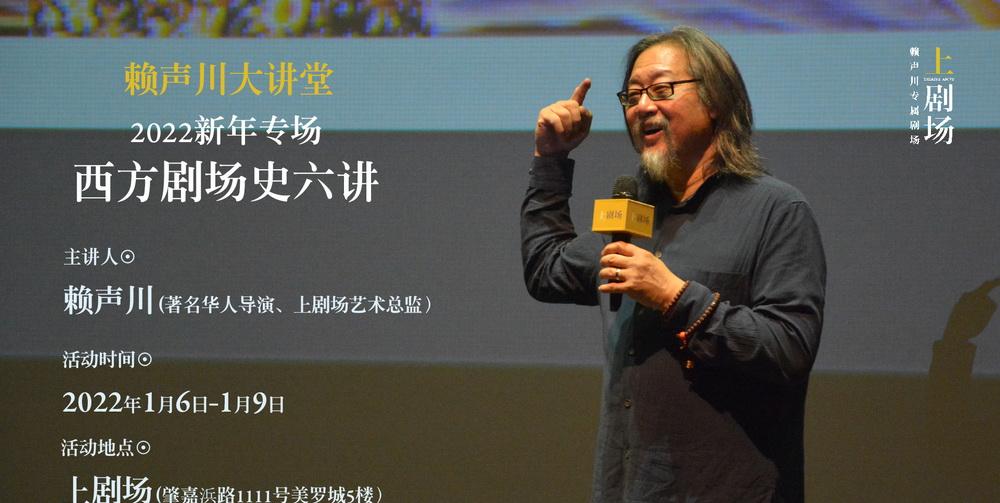The Paper's reporter Pan Yu intern Gu Qianqian
"Why study the history of theater?" At the beginning of the new year, drama director Lai Shengchuan took the stage of his own theater, from January 6 to January 9, starting six consecutive lectures on "History of Western Theater". In the first class, as soon as he took the stage, he threw such a question to the audience.
"Only by first studying the history of theater and understanding the past and present lives of theater can we break through the 'theater' and do a good job in drama." This is the answer given by Lai Shengchuan himself.

As a Chinese-language theater director who is familiar to the audience, Lai Shengchuan is also a doctor of drama at the University of California, Berkeley, in addition to the creator, and has served as the dean of the School of Drama at Taipei University of the Arts. Teaching the history of Western theater was once his "old job". The last time I gave a lecture was in 1999 at the Taipei Municipal Social Education Center. This time, this time, he gave the first lecture on the history of Western theater to the public after a gap of 22 years, and the reason for this was that he recently rearranged the materials of the theater history lecture hall of that year, "I have talked about the history of theater for many years before, and now I have a lot of new experiences and some changes, so I want to share it with you again."
Ancient Greek theater, Roman theater, theater culture formed by Shakespeare at the end of the 16th century, theater structure in the 19th century, and changes in the new theater today in the 21st century. In 3 days and 6 lessons, Lai Shengchuan wants to share with the audience a series of historical contexts related to the development of the theater.
Lai Shengchuan believes that drama and human history should be closely integrated, and the world can be seen through political history and art history; and life experience should be sorted out through the humanistic history of theater history, music history, architectural history, restaurant history, and even funeral history, which are related to human development.
"From ancient times to the present, human beings have used 'fields' to tell stories and perform stories, and the development of mankind is inseparable from the witness of the theater." In Lai Shengchuan's view, the connection of the audience, the connection between the actors on stage and the audience offstage, this is the unique charm of the theater. The development of mankind needs the witness of the theater. Theater people also need to be familiar with the history of theater: "What are you playing, you have to know whether the predecessors have played it, how to play." You have to know what recruits and who have used it, and you have to know the cultural environment and context behind it. When you're done, all the tools are in your hands. ”
Lai Shengchuan lectured at the scene
Lai Shengchuan said that he always asked the question in his mind: "What is theater?" What does theater do? Why do people need theater? Do you need a theater? What does a society without theater look like? Will there be any difficulties? In the Internet era, how can theater be integrated with the Internet? Will theaters disappear one day? It is precisely because of these problems that he has been trying to break the traditional frame stage form and theater space for many years, and in works such as "Dream Like a Dream" and "Once Upon a Time", the "Lotus Pond" in which actors perform around the audience is also out of this exploration. "I have spent more than 30 years of my creative career in theater, and every original work is constantly experimenting with the possibilities of 'theater'."
It is reported that all 6 Courses on the History of Western Theater are free to book for the audience and will be broadcast live online. The first lesson was attended by more than 100,000 viewers in the live broadcast room. Since 2016, Lai Shengchuan has shared many courses in his lecture hall: Italian Comedy about Why People Need Comedy, Structural Beauty of Shakespeare's Sonnets, Methods and Wisdom in Creativity, And The Code of Urban Creativity. He hopes that the theater will no longer be a simple theater, but a place where the theater will be closer to people's daily lives, a space for public dialogue.
Editor-in-Charge: Chen Shihuai
Proofreader: Ding Xiao